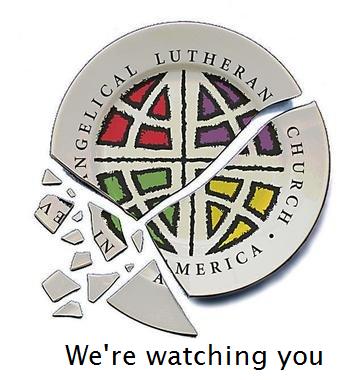- Font Size:
- Default font size
- Larger font size
The 2010 South Dakota Synod Assembly of the Evangelical Lutheran Church in America narrowly voted Friday against the national church's statement accepting gay relationships.
By a margin of eight votes, the state assembly passed a resolution, 251-243, with 10 abstaining, rescinding the national 2009 Churchwide Assembly's decision to recognize same-gender couples through its social statement "Human Sexuality: Gift & Trust," which also passed narrowly at the national level, according to Bishop David Zellmer, leader of South Dakota's ELCA congregations.
A re-vote was sought on Friday's action, but that request was denied by a 19-vote margin.
The state assembly is expected to vote Saturday on whether or not to rescind the national church's policy that allows gay clergy in a monogamous relationship to be on the ELCA's list of pastors and serve in churches.
The social statement lists four positions on relationships accepted by the ELCA, including gay marriage, Zellmer said.
The resolution and others being discussed during the three-day assembly at Calvary Lutheran Church in Rapid City are responses to the national assembly's inclusive position on gay couples and gay clergy, which disconcerted many congregations and worshipers nationwide. It resulted in some churches choosing to withhold funding from the national assembly and others choosing to leave the ELCA altogether.
In South Dakota, seven congregations have left the ELCA since the 2009 assembly's decisions, and seven more are waiting to take second votes on leaving.
More than 600 people attended Friday's Synod sessions.
The resolution passed Friday by the clergy and lay people, representing South Dakota's 123,000 Lutherans, makes two statements to the national assembly. First, it says adopting the social statement was a violation of the ELCA's Confession of Faith, the foundation of the church's beliefs. (The assembly voted down an amendment to remove this section.)
Second, it asks the 2011 ELCA Churchwide Assembly to reconsider and remove the social statement it approved in 2009.
Zellmer said it will be difficult to convince the national assembly to change what is now church law.
At the 2009 state synod, that assembly passed resolutions asking the national assembly not to pass the changes, but it happened anyway, Zellmer said.
The Rev. David Baer of Immanuel Lutheran Church in Whitewood said some congregations are not making a decision on leaving the ELCA until they see what happens at the state Synod, and others are waiting to see what happens at the 2011 national assembly.
Baer's church stopped contributing to both the national church headquarters and the state ELCA synod. He is also a part of the Lutheran Coalition for Renewal -- commonly called CORE -- which formed in opposition to the proposed changes to ELCA policies and church teachings.
Baer said churches are waiting because leaving the ELCA is like leaving your family.
"It's emotional; we feel connected," Baer said. "We do really relate to each other, and it's hard to say ‘no' to your family."
Zellmer said Friday's resolution may help some congregations decide to stay with the ELCA, but passing Saturday's resolutions on the church's policies on gay clergy would help the most.
"It would have more of an ability to have the churches step back and wait before they would take a vote to leave," Zellmer said.
Based on response from congregations at a national level, Baer and Zellmer both said it was unlikely the national assembly would change its mind. A splinter church, the North American Lutheran Church, is already forming for congregations leaving the ELCA; a constituting convocation is scheduled for August in Ohio, Baer said.
The South Dakota Synod Assembly will meet again in 2011, and the group's position could change before the 2011 national conference, Zellmer said.
In addition to gay clergy, the assembly is expected to vote on matters regarding mental illness education, encouragement of mission partnership, church elections and ending poverty and injustice.
Contact Holly Meyer at 394-8421 or holly.meyer@rapidcityjournal.com.
Posted in Lifestyles, Faith-and-values, Religion, News, Local, State-and-regional, Top-stories on Friday, June 11, 2010 8:43 pm

2 comments:
perhaps my memory is faulty, but isn't Bishop Zellmer the one who "censured" four congregations recently? He sounds almost fair and even-handed in this article. Same guy?
It was a difference of 8 votes. Big whoop. And there were two other sexuality-related resolutions the next day that failed. Those actions show that we're still not of one mind on this issue. No surprise there.
And Bruce, the Bishop was following the Synod's policy on churches that try to become dual rostered in another denomination. At the Assembly, a resolution passed directing the Bishop to hold off on discipline. The idea is that dual rostering temporarily might help a congregation decide if they want to officially stay or go. I didn't agree with that resolution, but I think it passed.
Post a Comment